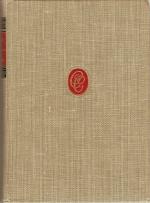|
This section contains 11,977 words (approx. 40 pages at 300 words per page) |

|
SOURCE: Draper, John W. “FitzGerald's Persian Local Color.” Philological Papers 14 (October 1963): 26-56.
In the following essay, Draper suggests that FitzGerald added numerous details of local color to the Rubáiyát because he was restyling the poem into an eclogue. Draper analyzes these additions, and maintains that they adhere to Persian scenery and customs.
For his English version of the Rubáiyát of ‘Umar Khayyám (d.1124?), FitzGerald used two late and widely differing manuscripts: the Bodleian (1460-61) with 158 quatrains, and the Calcutta, an undated and ill-written Indian text, with 516. The more authentic Cambridge manuscript (1207) was not found until 1950. These two sources the translator treated with the greatest freedom. The disconnected quatrain-epigrams of ‘Umar, which are arranged alphabetically, Persian-fashion, he re-ordered to get the unity of a single poem; even in one rubá‘í, he might put together parts widely separated in the originals; and he omitted details...
|
This section contains 11,977 words (approx. 40 pages at 300 words per page) |

|


